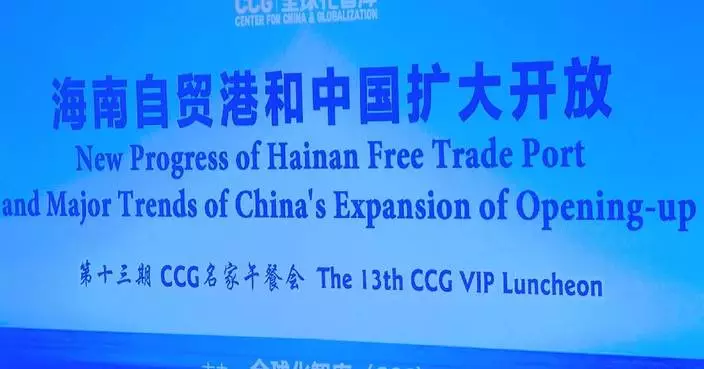China has introduced new policy adjustments to ease stock buyback refinancing by lowering the borrower's own funds ratio to 10 percent and allowing pledges of other shares held by listed companies and major shareholders, so as to reduce the financial burden on borrowers.
Introduced by the People's Bank of China (PBOC), the country's central bank, on Oct 18, 2024, the stock buyback loan policy allows eligible financial institutions to offer loans to listed companies and their key shareholders for stock repurchase or stake increases.
By the end of December 2024, financial institutions had reached cooperation intentions with over 700 listed companies and major shareholders, with more than 200 publicly disclosing proposed loan ceilings exceeding 50 billion yuan (about 6.8 billion U.S. dollars).
Over 60 percent of the loans are designated for buybacks, with an average interest rate of around two percent.
Additionally, statistics indicate that the total upper limit for disclosed buyback plans across the market exceeded 250 billion yuan (about 34 billion U.S. dollars) by the end of 2024.
"The policy allows listed companies to use bank loans for share buybacks. Banks providing these loans can seek proportional refinancing support from the central bank. Increased holdings and reduced share supply can theoretically boost stock prices, enhance market confidence, and protect company valuation," said Tian Lihui, dean of the Institute of Finance and Development at Nankai University in north China's Tianjin Municipality.
In response to feedback from listed companies and major shareholders about their limited funds, financial authorities have adjusted the policy. The minimum self-funded ratio required for applying for stock buyback loans has been reduced to 10 percent, meaning financial institutions can now support up to 90 percent of the actual buyback amount instead of the previous 70 percent, lowering the entry threshold and easing the financial burden on borrowers.
Besides, the loan term has been extended to a maximum of three years.
"In simple terms, if a listed company wants to buy back 100 yuan (about 13.7 U.S. dollars) worth of stock, under the previous policy, it had to contribute 30 yuan (about 4.1 U.S. dollars), with the bank covering the remaining 70 yuan (about 9.6 U.S. dollars). Now, the company only needs to contribute 10 yuan (about 1.4 U.S. dollars), while the bank can cover 90 yuan (about 12.3 U.S. dollars). Additionally, the new policy extends the loan term to a maximum of three years. This gives companies more time to use the loan for stock buybacks without the pressure of repaying it in the short term," Tian explained.
Additionally, new risk control measures have been introduced. Listed companies and major shareholders can now pledge other stocks as collateral, while financial institutions have been granted discretion in setting loan conditions and collateral requirements.
The policy also encourages issuing these loans on a credit basis.
For banks that do not have third-party depository qualifications, the policy supports collaboration with agent banks to conduct business. The lending bank can transfer the loan funds to the relevant accounts through the agent bank, which will then be used to support listed companies and major shareholders in stock buybacks and shareholding increase.

China eases stock buyback loan rules to boost financial market confidence





















































